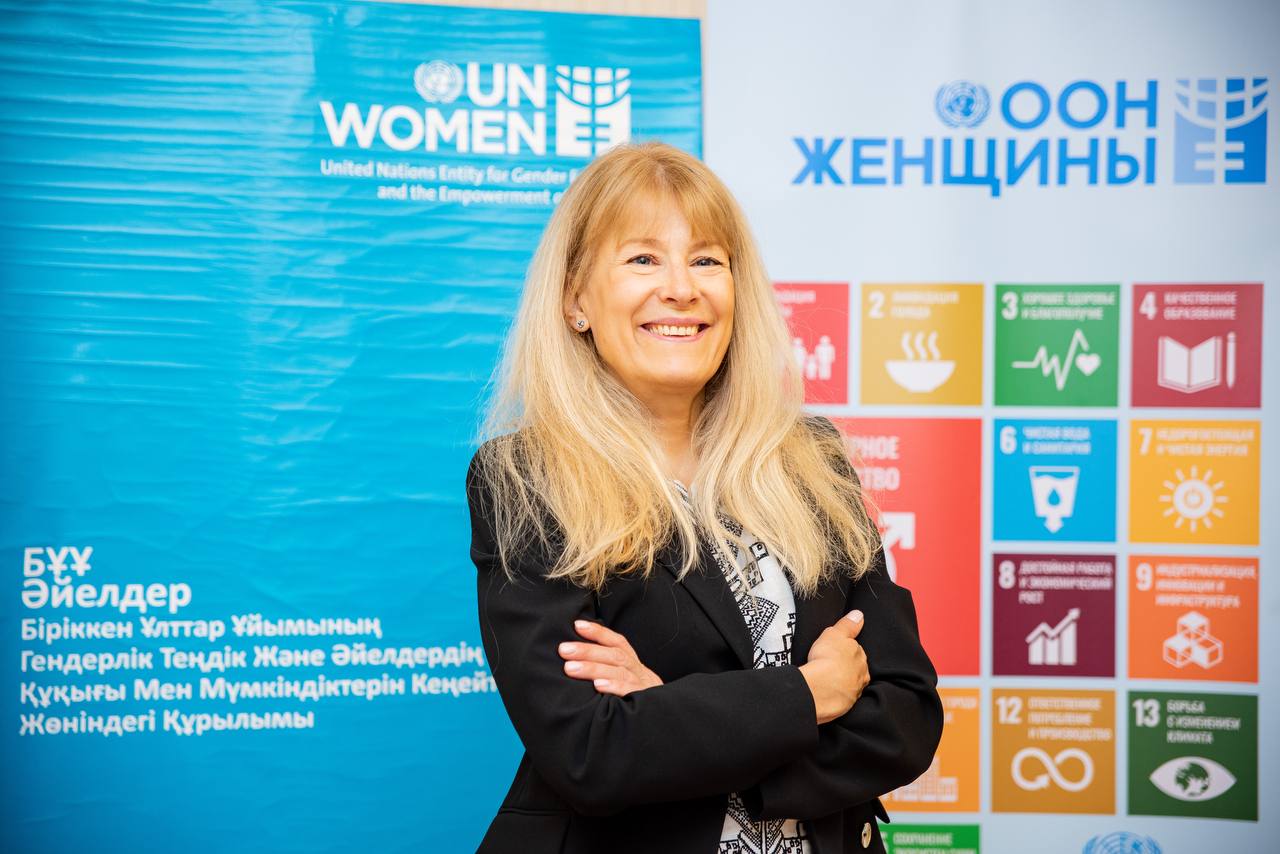ASTANA – This year, Kazakhstan ranked 62 out of 146 countries in the Global Gender Gap, climbing three positions, according to the latest report published by the World Economic Forum (WEF) in late June.

Photo credit: Shutterstock.
Kazakhstan improved its economic participation and opportunity subindex ranking by one place, coming 28th. The country came 100 in political empowerment, an improvement of three positions compared to last year, and 27th in educational attainment, the same as in 2022. Kazakhstan dropped three places from 44th to 47th in the category of health and survival.
Maria Dotsenko, the United Nations Women Representative to Kazakhstan, congratulated the country on its progress in promoting gender equality globally and improving its ranking in the WEF, pointing out the important role of national partners in this work, including the National Commission for Women Affairs, Family and Demographic Policy, the Parliament and the government, civil society organizations and activists, and businesses.
“The UN Women has been providing comprehensive support to the national partners in advancing gender equality and empowering women and girls in Kazakhstan since 1999. Our organization will continue to closely collaborate to increase the representation of women in decision-making positions, combat gender-based violence, and reduce the gender pay gap,” she said.

Maria Dotsenko, the UN Women Representative to Kazakhstan. Photo credit: UN Women Kazakhstan.
Dotsenko proposed several measures to improve the country’s position in the Global Gender Gap, including the creation of the Ministry of Gender Equality and strengthening the National Commission’s status. UN Women supports the expert’s proposal of the need to increase the staff of the National Commission and adequately finance its activities, as this body plays a crucial role in achieving gender equality.
“Kazakhstan needs to introduce a Vice Minister and/or Gender Adviser position in every government body. These positions would conduct a gender audit, following international standards, before approving strategies, policies, and draft laws at the national and regional levels,” said Dotsenko. “Gender aspects should be included in all national and local planning and budgeting processes.”
Another measure she emphasized is introducing a gender quota with a minimum threshold of 30% for women in decision-making at the national and local levels.
“Current electoral and political party laws include a 30% quota on electoral party lists for women, youth, and people with disabilities. We are advocating for a separate minimum 30% quota for women only,” she said.
According to Dotsenko, UN Women is urging the ratification of the Elimination of Violence and Harassment in the World of Work Convention 190 of the International Labour Organization, which safeguards against all forms of workplace harassment, including sexual harassment, for all individuals regardless of gender. It is also important to tough penalties for domestic violence in Kazakhstan.
“We must continue implementing systematic, structural reforms in this regard, raising public awareness, and engaging men in the fight against violence and gender stereotypes. Last year, Kazakhstan and other Central Asian countries joined the UN Women’s HeForShe global campaign, which encourages men and boys to advocate for a more equitable world,” said Dotsenko.
UN Women’s initiatives in cooperation with the government
UN Women supports the increased representation of women in peacekeeping operations. In collaboration with the British and Canadian Embassies in Kazakhstan, UN Women provided assistance to the Kazakh Ministry of Defense’s Peacekeeping Operations Center in organizing gender awareness training for peacekeepers.
UN Women is a partner in the project which initiated the establishment of 20 women’s entrepreneurship development centers in the country, where women have gained opportunities to start or expand their businesses.
UN Women, in partnership with the National Commission and the Kazakh Ministry of Information and Social Development, conducted leadership potential training programs for women from all regions of Kazakhstan to enhance their political engagement. Participants received intensive training in campaign writing, voter outreach, and gender mainstreaming within political parties, enabling them to educate other women.
Dotsenko expressed her hope to witness a higher representation of women deputies in parliament, maslikhats (local representative bodies), and akimats (city administrations) at all levels, including rural areas, in alignment with the “Leave no one behind” principle of the Sustainable Development Goals.
The UN and the European Union have been implementing the Spotlight Initiative regional program for Central Asia and Afghanistan, aimed at eliminating all forms of violence against women and girls since 2020.
According to Dotsenko, only three countries worldwide, including Kazakhstan, have provided additional funding to the Spotlight Initiative, showcasing their dedication to ending violence against women and girls.
In June the Central Asian Alliance to End Gender-Based Violence was launched as part of the Spotlight Initiative in Almaty, aiming to advocate for gender equality, strengthen civil society and create a platform for knowledge-sharing and expertise to prevent and address gender-based violence in the region.
“In cooperation with the Ministry of Science and Higher Education and other partners, we also aim to incorporate a gender course into the curriculum of the country’s universities,” said Dotsenko.

